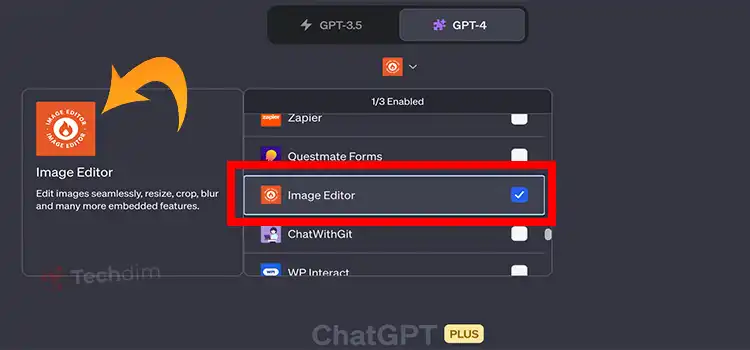Does ChatGPT Plagiarize? | Proper Explanation
Much of ChatGPT’s popularity can be attributed to the fact that it can generate human-like responses. Using that, generating high-quality content seems easy. It has already established itself as the go-to tool for content creators, marketers, and writers. However, with the growing popularity of content generation with AI, comes the question of plagiarism.
So, does ChatGPT plagiarize? In short, ChatGPT, as an AI (Artificial intelligence) language model, generates its contents with what’s available both on and off the internet. Therefore, what it generates, is not directly plagiarizing. However, whether it plagiarizes or not depends a lot on your prompts. Read on to understand what plagiarism is in the traditional sense and why ChatGPT responses are not plagiarized.

Generally speaking, when you use someone else’s work and pass it as your own, without giving them proper credit, it’s considered plagiarism. It can either be blatantly copying text or even visuals. It is a dishonest act and can lead to severe repercussions, especially in the academic and professional environment. Therefore, proper citation and referencing are crucial to avoid plagiarism and show respect for original authors.
Is ChatGPT Plagiarizing?
Knowing what plagiarism is, does what ChatGPT do can be called plagiarism? Well, as a language model, it can’t plagiarize. However, if what it generates closely resembles content that already exists, it can certainly be identified as plagiarism.
ChatGPT doesn’t copy blatantly copy from a source, it simply uses its training data to generate a response. One could simply argue this is what a lot of other rephrase bots do. And they’d be right. So, if you are using ChatGPT to simply rephrase existing content and pass it on as your own, then you are committing plagiarism. Again, it’s what you are doing, not ChatGPT.
What’s ChatGPT’s Plagiarism Score?
A text that is 15 percent or less similar to an existing one is considered acceptable by most journals. On the other hand, if a text has 25 percent or more similarity is considered highly plagiarized.
So, what’s the plagiarism score for ChatGPT? The plagiarism score represents the estimated percentage of text that is either copied or written using AI tools, and it can differ across different plagiarism detectors. Most sources claim that ChatGPT’s plagiarism rate is less than 5 percent, which is very much acceptable.
However, some services like Turnitin, which claims that they can detect any sort of AI-generated content, have a higher level of plagiarism detection rate.
How to Make ChatGPT Contents Plagiarism Free?
While ChatGPT can assist you in generating the content, the responsibility lies with you to ensure that the final work is plagiarism-free and properly attributed to the sources. Remember, it’s meant to be used as a research tool. With that in mind, let’s now take a look at how you can make your content plagiarism free.
1. Paraphrase and rephrase
Instead of directly copying content, rephrase it in your own words. This helps to avoid verbatim duplication.
2. Proper citation and referencing
If you use specific information or ideas from a source, make sure to provide proper citations and references to acknowledge the original author. Follow the appropriate citation style (such as APA or MLA) recommended by your institution or organization.
3. Use multiple sources
Gather information from various sources and incorporate different perspectives into your content. This helps to create original work by combining and synthesizing information from multiple authors.
4. Add your insights and analysis
Include your unique thoughts, interpretations, and analysis when discussing a topic. This demonstrates originality and shows that you have engaged with the content rather than simply regurgitating information.
5. Verify facts and statistics
Double-check any factual information or statistics you include to ensure accuracy. Providing accurate information helps to maintain the integrity of your work.
6. Proofread and edit
Before submitting or publishing your content, thoroughly review it to identify any inadvertent similarities to existing work. Use plagiarism detection tools to scan your content and make necessary revisions if needed.
Frequently Asked Questions and Answers – FAQs
Is using ChatGPT plagiarism?
As ChatGPT is not copying someone else’s work outright, it is not plagiarism. However, from an academic point of view, if you use an essay or article generated by AI, then it is plagiarism since you have not created it yourself.
Is ChatGPT plagiarism free?
ChatGPT does not engage in plagiarism. It is a language model that generates its content based on the input it receives. However, sometimes its output may resemble existing content, which might give the impression of plagiarism.
Can universities/professors detect ChatGPT?
If you submit your work through your university’s learning management systems like Turnitin, it is possible to detect ChatGPT and AI-generated content and plagiarism.
Does ChatGPT give the same answer to everyone?
No, ChatGPT doesn’t provide the same answer to everyone. ChatGPT’s responses are influenced by its training data and the input it receives. The specific prompt, context, and other factors can cause variations in its output, even though the underlying model remains the same.
End Notes
In conclusion, whether ChatGPT plagiarizes or not, actually depends on you. As a generative language model with natural language processing ability, ChatGPT does not produce any plagiarized content. However, it can closely resemble already existing content and can often give off a plagiarized signal in many plagiarism detection tools. It is created as a research tool and should be used like one. So, don’t blatantly copy and paste from it, use proper citations and give credit where it’s due.
Subscribe to our newsletter
& plug into
the world of technology


